Mercy, mercy, I do declare,
If half the fun of goin’ is-a gettin’ there,
Mercy, Percy, you better start rowin’,
‘Cause the other half of gettin’ there is goin’.
— From “Old Fat Boat” by Gordon Bok
It’s amazing how swiftly life turns upside-down, and suddenly, you’re zooming down a new path (OK, maybe “zooming” is not quite the word at 5 knots). While it feels great to be on a boat that is floating, and in Florida no less, I can’t believe it’s not a dream. I keep thinking I’ll wake to the morning roar of the Travelift any minute now.
As our friends on Panta Rhei recently pointed out, “your website doesn’t tell the final chapters of the haul out story.” Perhaps if I put some of those events down on paper, it will seem less surreal.
When Barry and I returned to the boat in October for what turned out to be the final assault on the mountainous to-do list, our lives changed substantially. The reason was this: We had left the Squid Wagon on the west coast and were now living ten miles from town without our own car. This was not as onerous as it sounds, because there were lots of interesting vehicles available for us to borrow.
Beginning in 2008, Barry and I somehow had become the “keepers of the keys.” A number of cruising friends had asked us to watch over their stored vehicles, and at one point in 2009, we had 9 sets of keys on the boat! We even got to deliver some vehicles to and from exotic locales with unusual side benefits (the trip to St. Augustine in Wind Lore’s Camry netted us the only Britney Spears song in our collection).
As a result, we’d learned from our friends’ experiences that for cruisers, owning a car can be a bother. At one point, our friends on Ocean Gypsy were on the boat in Connecticut and had one car at Bock’s and another at the train station in Rocky Mount. They’d spent four days and many dollars moving a car to follow the boat — two days of driving one way, two days of riding the train the other way, plus hotel stays along the way. At that point, Ted called us out of the blue, and the conversation began with the usual, “Where are you?” “We’re in Raleigh, looking for a way back to Beaufort. Where are you?” “We’re in Essex, but we left a car near Raleigh!” It was a little miracle that got us back to the boat, with wheels, and saved them yet another day of car-ferrying.
So we started working on the “list” again. I was depressed, because we still didn’t know how long the work would take. Then my Dad called at the end of October with even more depressing news. His eye doctor had found something suspicious during a checkup. A second opinion with a super-specialist was scheduled for December, but the doctor wanted him to prepare for eye surgery — and total blindness during recuperation — in January.
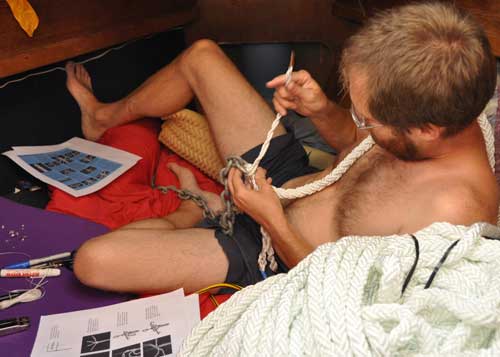
I put the question to Barry. Could we launch the boat and motor to Florida by January, in order to serve as floating caregivers? While Dad was recuperating, we could even use his garage to make our sails.
Barry choked a bit, then agreed. Suddenly, we had a deadline — one month to get the boat moving! Yikes!
The news spread through the boatyard like wildfire. People started coming up to us, saying, “Is it really true? That you’re going to launch your boat after all these years?” Emotions ranged from congratulatory to incredulous to accusatory. “Traitors! You’re not really going to leave us, are you?”
The truth was, the engine work was done. The major fiberglass work was done. Nine portlights and two hatches were replaced. The masts were up, their lightning protection systems installed. Rewiring, replumbing, new bilge pumps — done. The ground tackle was ready to go.
What was keeping us here, besides inertia, was a bunch of projects, but nothing we didn’t know how to do. Paint the bottom, replace another hatch, rebed the stern rail. Reassembling the steering and engine controls would be tricky, but Barry wasn’t intimidated. What did intimidate him was dealing with the material “stuff” we had amassed during three years in Beaufort.
There was a section of our friend Kevin’s garage devoted to our “stuff.” More “stuff” was arranged in piles and bins around our keel. Until Ocean Gypsy arrived, we even had some “stuff” (an enormous but lightweight roll of insulation) stored in the back of Ted’s car!
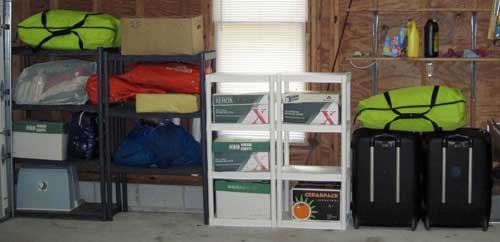
We began tackling the projects and the “stuff” with an unbelievable amount of loving patience towards each other. The pressure was immense, but now that the path was clear, we were able to get up at dawn and stay focused all day long. This was partly due to the fact that a connector on our wi-fi antenna had chafed through, so we no longer had internet on the boat! In order to check e-mail or order parts, we had to walk about a block to the lounge with a laptop. I stopped logging into Facebook every day. Barry stopped reading Sluggy Freelance.
Our boatyard friends were encouraging. “Keep your chin up!” said Audrey. “You’ll be launching your ship soon, and it will be EPIC!” said Logan. Friends from afar sent their encouragement in emails. “…congrats on moving forward with the boat… I look forward to hearing about the journey down the ICW,” wrote Nancy, from Seattle. “You aren’t burnt out, are you?” wrote Kris, from Capetown.
With the loss of our sailing mentor, Bill Brown, in October (who once told us, “Living aboard in a boatyard has gotta be the postgrad course in tolerance.”), Kris was the single most encouraging friend we had. Since we met in a Lunenburg laundromat in 2004, the three of us have had a number of fun times together, either messing about on boats or talking about messing about on boats. In October, Kris sent us this encouraging message: “Check the job-jar, keep looking till it’s empty, shake the jar to make sure it’s empty, and start singing ‘it’s 5 o’clock somewhere’ ….. Something will happen soon, I promise!”
He was right — something happened soon. I’ll tell you what in Part Two, tomorrow.

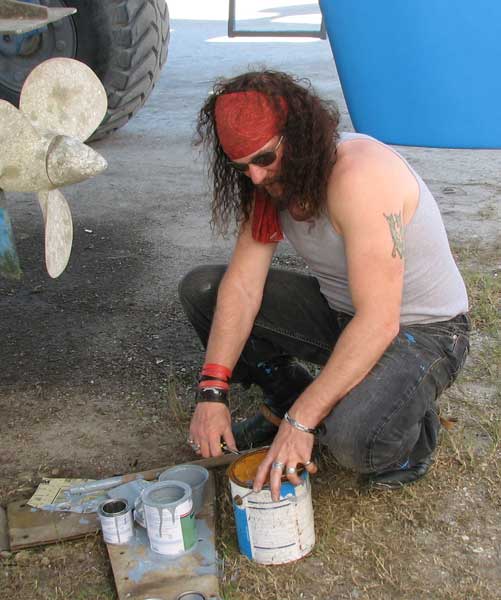
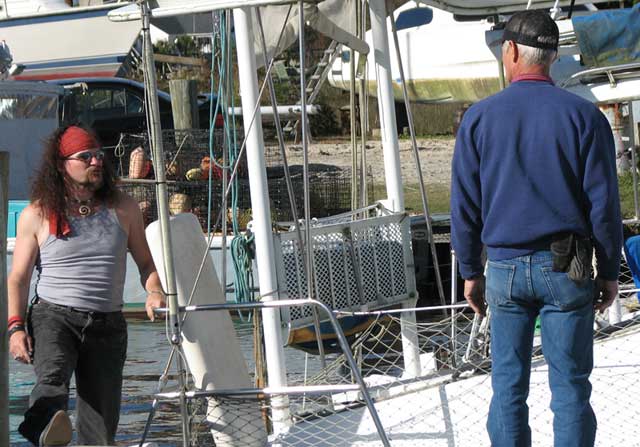
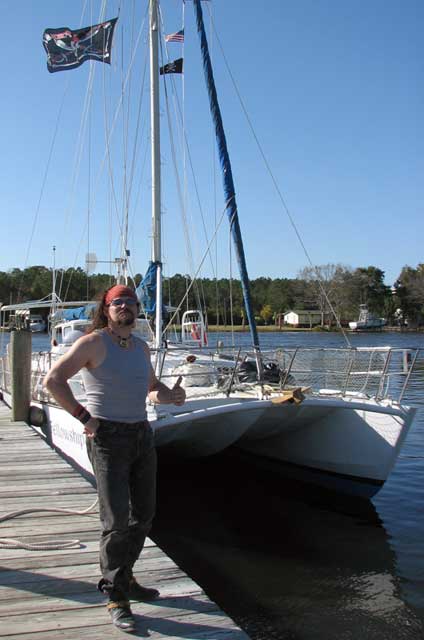
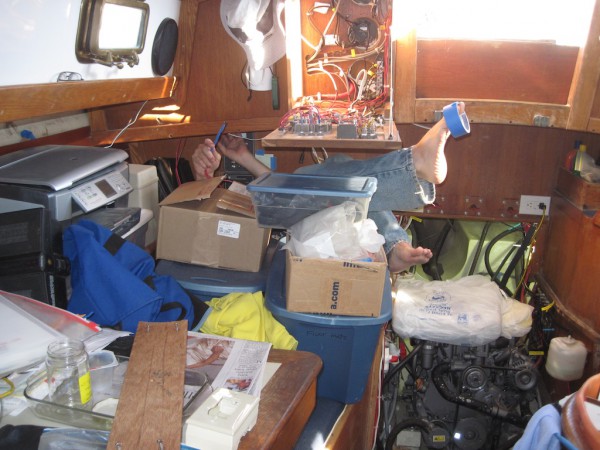
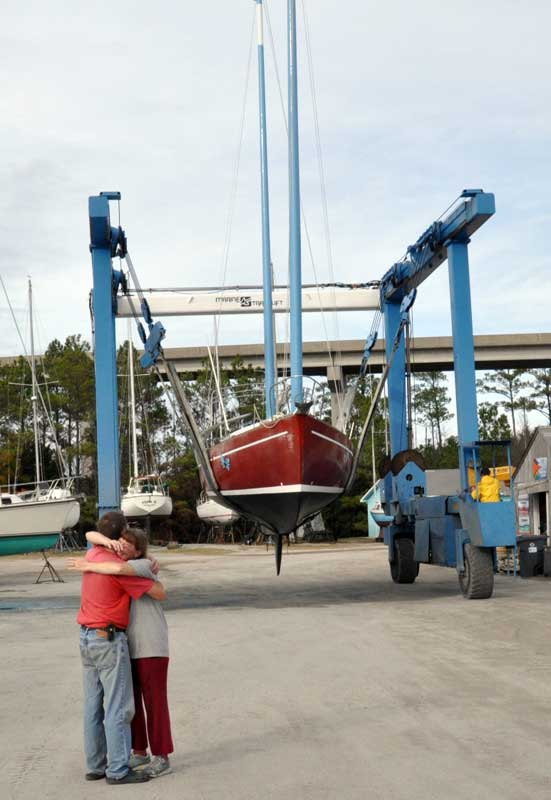
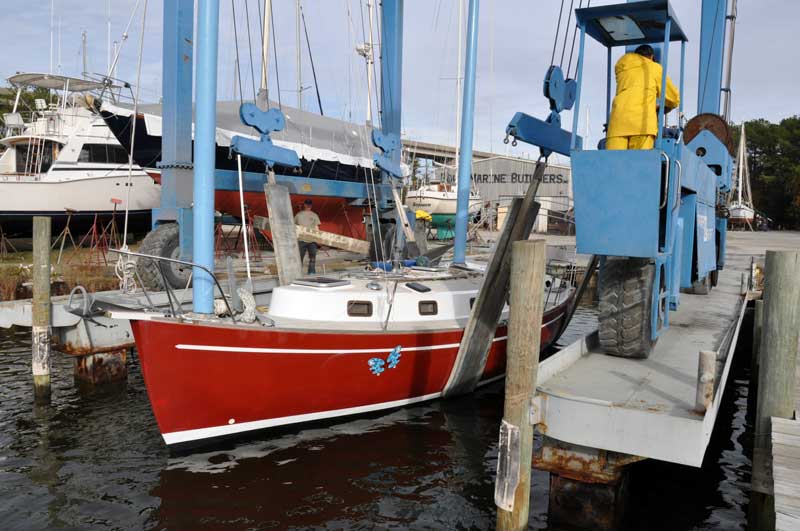
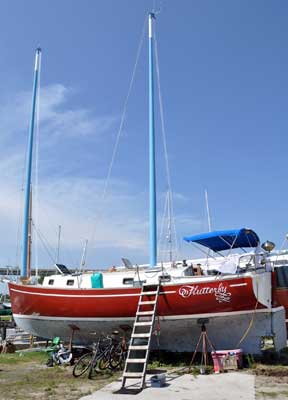
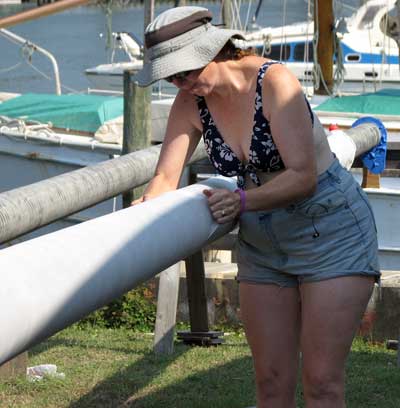
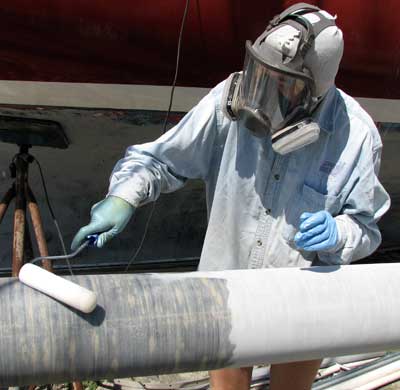
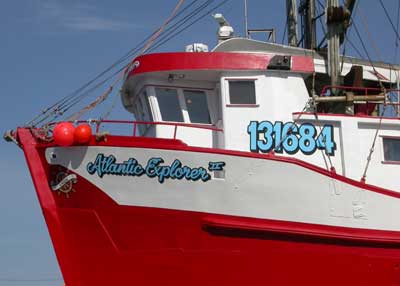
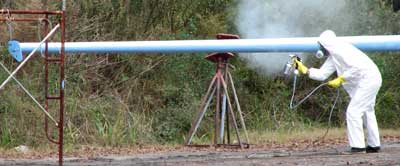
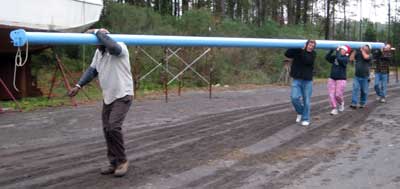
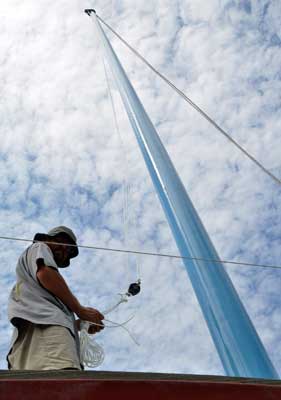

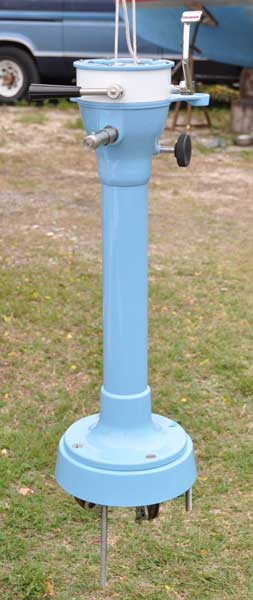

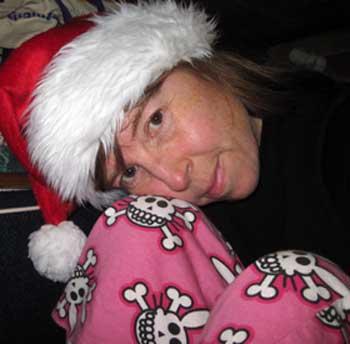 In my Santa hat? There’s a tradition! We wear our Santa hats all the time in December. When it’s warm, don’t come on the boat — we might not be wearing anything with them. When it’s cold, my Santa hat goes great with my pink Death Bunny pajama pants. Which I sometimes wear out in the boatyard, just for grins.
In my Santa hat? There’s a tradition! We wear our Santa hats all the time in December. When it’s warm, don’t come on the boat — we might not be wearing anything with them. When it’s cold, my Santa hat goes great with my pink Death Bunny pajama pants. Which I sometimes wear out in the boatyard, just for grins.